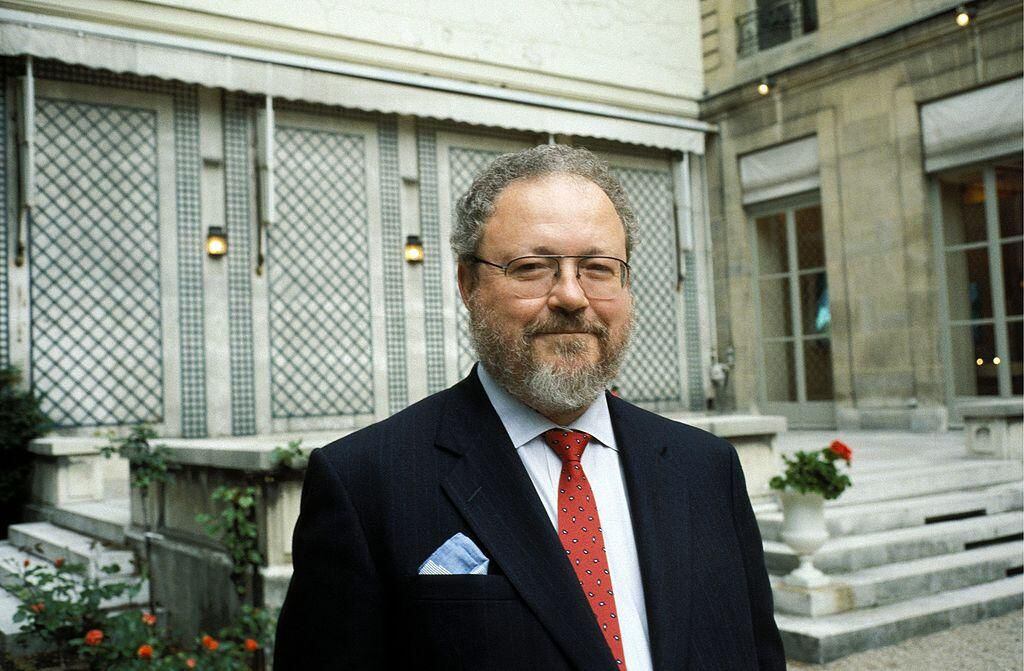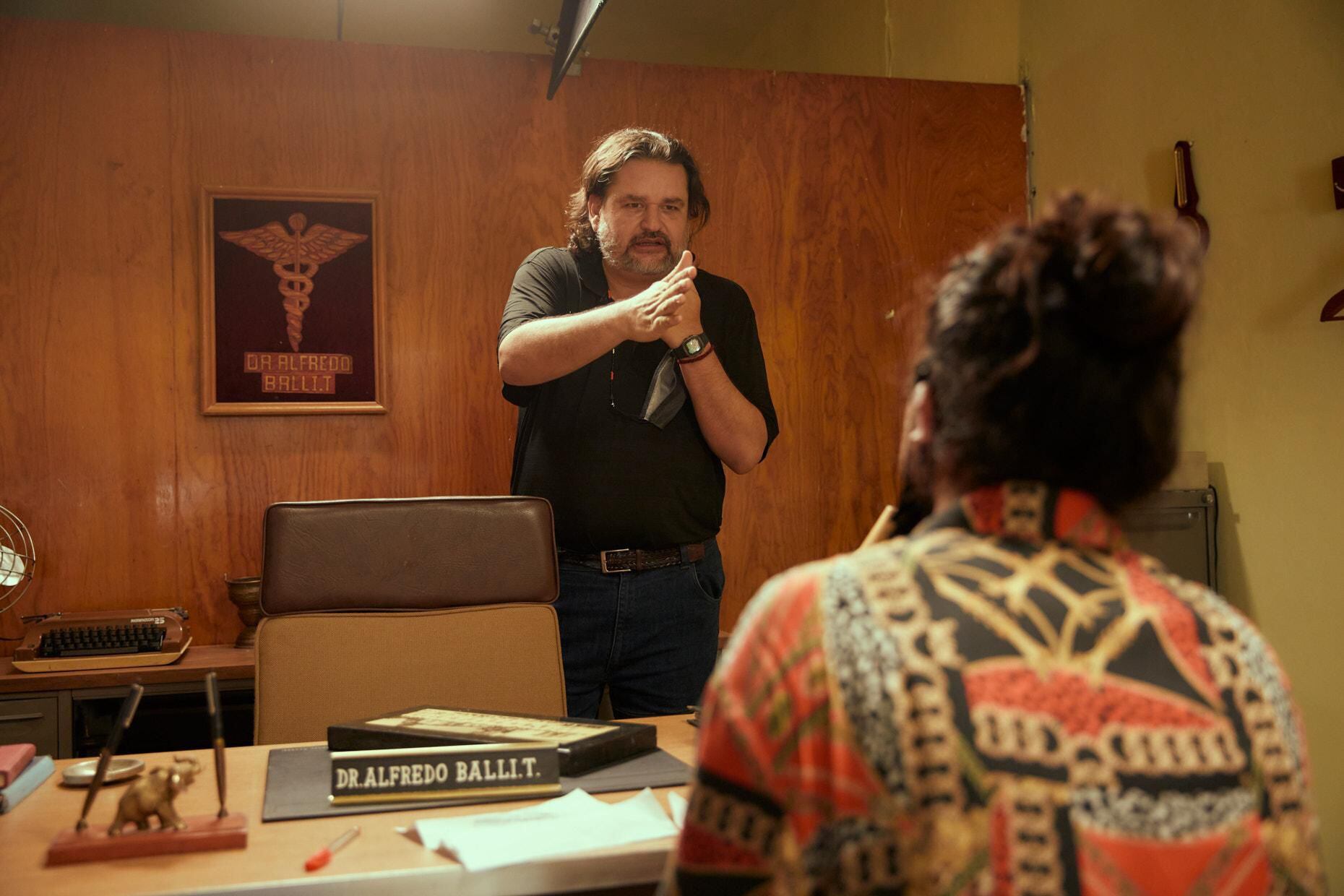People said that the devil was loose in Monterrey. The city of northern Mexico was experiencing a social psychosis at the end of 1959, after the murder of several people in horrendous circumstances.
A couple of crimes were among the most notorious in that city, which, at that time, was not used to the big headlines of crime stories.
LOOK: The ridiculous bank robbery that led to the discovery of the Dunning-Kruger effect (which makes us believe we are smarter than we are)
First there was the murder of Jesus Castillo Rangela young man whose body was dismembered and buried in a doctor’s office in the Talleres neighborhood.
“This finding raises enormous concern. And the fact that a few days later it is known that the perpetrator was a brilliant, young doctor, impacts the city, which is shocked”, explains to BBC Mundo the journalist and writer Diego Enrique Osorno, who investigated the cases.
Then they were massacred three brothers from the Pérez Villagómez familywho were returning from Texas from a shopping trip and were attacked by an armed “loco” on a highway near the capital of Nuevo León.
“By that time, the city had a very big psychosis because crimes that had never happened were taking place,” says Osorno.
Such high-impact cases were not related to each other, but they unexpectedly conjugated so that the famous writer Thomas Harrisauthor of The Silence of the Lambs (known in Latin America as The silence of the inocents)will create one of the most iconic villains of 20th century literature and cinema: Doctor Hannibal Lecter.
The writer was particularly inspired by the man behind the murder of Jesús Castillo: the Mexican doctor Alfredo Balli Trevino.
doctor salazar
Thomas Harris was a young 23-year-old journalist based in Waco, Texas, where he collaborated with a local newspaper and with the magazine argosy.
For this latest publication, they asked him to travel to Mexico to meet with Dykes Askew Simmonsan American from Texas who had been arrested and sentenced for the murder of the Pérez Villagómez brothers in 1959 and who was said to be a “scapegoat”.
Simmons was a man with multiple marks on his face, including his cleft lip as well as other scars. He was admitted to the Topo Chico State PrisonNuevo León, where he was sentenced to death (one of the last death sentences handed down in Mexico before its abolition).
The convict once tried to escape from prison, but the plan did not work out and he was shot several times by the guards.
“He didn’t bleed to death because he was saved by a very skilled prison doctor,” Harris explains in the 25th anniversary edition of his novel. The Silence of the Lambs.
In prison, Harris was introduced to a doctor with the last name Salazar, who gave consultation in the prison. “He was a small and light man with dark red hair. He stood up very straight and there was a certain elegance about him,” the writer describes in the aforementioned book.
For a while he talked to the doctor about Simmons and his psychological profile, theorizing that his physical appearance probably made him grow up as a victim of bullying. And they wondered if this had to do with his behavior.
Before leaving the prison, Harris asked the warden of Topo Chico who that incisive doctor was. He got a big surprise when he heard: “The doctor is a murderer”.
“As a surgeon, he was able to pack his victim into a surprisingly small box,” the warden told Harris. He was a “crazy” but intelligent doctor, whom allow him to care for prisoners and even make external consultations for people in needbecause “with the poor the crazy is removed”.
In the text, Harris notes that Salazar was not his last name, but does not give his real name to “leave him alone.”

Decades passed until in 2013 the writer revealed in the reissue of his novel that that trip to Mexico and, especially the convicted doctor from the Topo Chico prison, had served as inspiration for the character of Hannibal Lecter.
The Monster of the Workshops
Ballí was a young, married doctor who had his office in the Talleres de Monterrey neighborhood. There he was a respected figure, mainly because of his dedication to caring for people without access to health programs.
At the age of 28, on October 8, 1959, he had an altercation in his office with Jesús Castillo Rangel, a 20-year-old young man. with whom he allegedly had a romantic relationship.
With the investigations, it was learned that Ballí supplied Castillo with a sedative and, even though he was alive, used his surgical instruments to dismember him. He then put his body in a box, but it didn’t cover his tracks well and his body was found in his office.
Journalist Diego Enrique Osorno explains that he helped Harris investigate the 1959 murders before the American writer revealed the identity of “Dr. Salazar.”

“One of the allegations surrounding the Ballí case was that of a crime of passion, of a homosexual relationship that in those years, and in a city as conservative as Monterrey, was something scandalous. So he hits jail like the monster of the Talleres neighborhoodsomeone also without a defined binary sexuality ”, explains Osorno.
It didn’t take long after Castillo’s murder for Ballí to confess to the crime. He was sentenced to prison in Topo Chico, which was then a feared state prison and where someone, given the slightest rumor of being homosexual, would have a difficult stay.
But Ballí had no problems. On the contrary, there he was a respectable man.
The prison doctor
Osorno is currently producing a documentary miniseries, which will be released in 2024, so he has expanded his investigation of the case.
The journalist and writer says that the years in jail that doctor had show a fascinating and contradictory character.
And it is that shortly after being admitted, Ballí used his medical skills to care for other prisoners who were injured in the fights in that dangerous prison. At one point they allowed him to have an office.
“He is a doctor who saved many lives inside jail. He attended not only inpatients, but also on family visit days, there were lines of people from the poor neighborhoods surrounding the prison who went to ask for medical attention that the State did not provide, ”he explains.
The image projected by someone who coldly committed a crime like the murder of Castillo was striking. “He showed himself to be someone brilliant, intelligent, neat, who didn’t look like a murderer,” explains Osorno.

From what Harris himself tells, as a young journalist he was impressed by the way the Mexican doctor analyzed Simmons.
“Mr. Harris, how did you feel when you looked at Simmons?” Ballí asked, as the doctor “was trying to see if you fit the description of the killer given by an eyewitness.”
They talked about Simmons’s scars and how he behaved when they looked at him straight on. And if the murder of the Pérez Villagómez brothers was a response from Simmons to feeling intimidated by his physique.
“You are a journalist, Mr. Harris. How would you put that in your journal? How do you deal with fear of torment in journalism? Could you say something scathing about torment?” Ballí asked Harris.
Lecter’s Profile
Harris points out that thanks to his interview with the doctor in Topo Chico, he was able to identify the characteristics of the Hannibal Lecter who appears for the first time in the novel “Red Dragon” as a secondary character.
“Years later, I was trying to write a novel. My detective needed to speak to someone with peculiar knowledge of the criminal mind. Lost in the tunnel at work, I took my detective to the Baltimore State Hospital for the Criminally Insane to consult with an inmate,” Harris recounts in the 25th anniversary edition of his novel.
“Who do you think was waiting in the cell? It wasn’t Dr. Salazar, but thanks to doctor Salazar, you could recognize your colleague and fellow practitioner, Hannibal Lecter”.

For Osorno, the figure of Ballí was reflected in Lecter in two ways: his impeccable, elegant, obsessively neat appearance inside a sinister jail, gloomy like Topo Chico.
“And on the other, the ability to penetrate the minds of others and generate interesting questions about what motivates someone to commit a crime”, he considers.
In 1979, when Harris writes his first novel, he plays the character of Red Dragon and that is the first time that he delves into his own impressions as a reporter. He was very impacted by that encounter and introduces this Hannibal Lecter character, a Dracula,” he says.
Simmons seems to have his own reflection in the character in the movie “Red Dragon,” who also has a cleft lip, but Harris hasn’t said whether the jailed Texan in Monterey was also his inspiration.

The sentence that Ballí was serving was commuted after 20 years. The doctor was released in the late 1970s and, to the surprise of some, returned to his office to continue serving the people of the Talleres neighborhood.
Ballí had confessed to the crime of Jesús Castillo, but the motive for the attack was never clear, nor were other murders suspected of the doctor solved, but never proven.
“Above all [hubo] a pair [de casos] identified, but never formally accredited or recognized by Alfredo Ballí. In our investigation, we raised certain questions about two cases,” says Osorno, who visited the doctor’s office after his death in 2009.
More than a decade later, the journalist points out that in his investigation of that doctor he found “a story about the fascination with evil, why it attracts us in the end.”
Source: Elcomercio
I am Jack Morton and I work in 24 News Recorder. I mostly cover world news and I have also authored 24 news recorder. I find this work highly interesting and it allows me to keep up with current events happening around the world.

:quality(75)/cloudfront-us-east-1.images.arcpublishing.com/elcomercio/HXCNH6YC4JEPLD5ZX43Z5J5WJM.jfif)

:quality(75)/cloudfront-us-east-1.images.arcpublishing.com/elcomercio/ONIQB2CZFZDBZHHJGSUWOTXAOI.jpg)
:quality(75)/cloudfront-us-east-1.images.arcpublishing.com/elcomercio/OPDZS2BV65HFPJGZDNJV6HTHYQ.jpg)
:quality(75)/cloudfront-us-east-1.images.arcpublishing.com/elcomercio/DWYEKUKWJFBGFGCKU42Y5U6L5A.jpg)
:quality(75)/cloudfront-us-east-1.images.arcpublishing.com/elcomercio/4KAZWVAL4FB5XEQI7W5A6Q4HXE.jpg)
